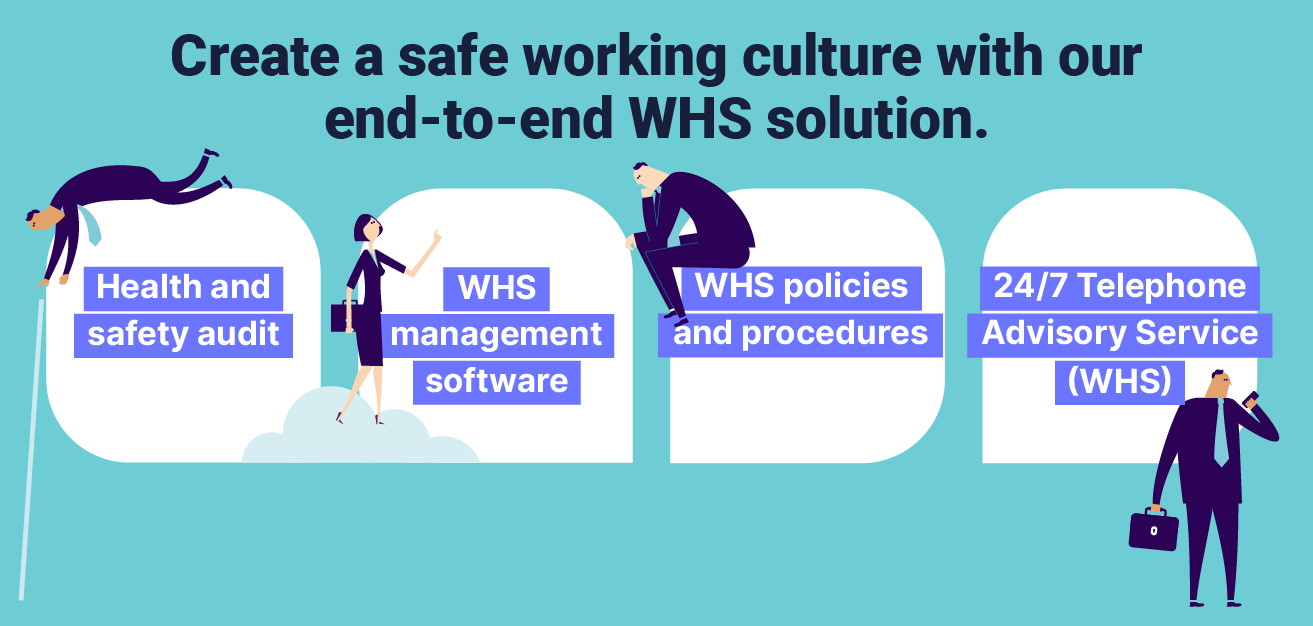By Tom Robinson
One of the principal responsibilities of employers under Work Health Safety (WHS) law is to report and notify the relevant safety regulator of any notifiable incidents that occur at the workplace. Each state-based WHS regulator requires employers to disclose such information as soon as practicable and can impose strict penalties on body corporates and individuals who don’t comply with these obligations, including reporting late or failing to report at all.
In this article, we answer four critical questions about managing WHS reporting obligations including when employers are required to report, the penalties associated with failing to comply, and what employers can do to minimise their WHS risk.
1. When are employers required to report a WHS incident?
An incident must meet a certain threshold, which varies between jurisdictions, for an employer to be required to report it to the State or Territory safety regulator. However, these thresholds are substantially similar across jurisdictions. Fundamentally, where any of the following incidents occur at a workplace it is a ‘notifiable incident’ under WHS law:
- death of any person;
- a serious injury or illness; or
- a dangerous incident.
The person conducting a business or undertaking (PCBU) (which is effectively the employer under WHS law) who’s workplace the ‘notifiable incident’ occurs at bears the responsibility to notify the WHS regulator in each State immediately. It’s advisable to ensure that all employees are aware of the procedures that must be followed if a notifiable incident occurs so that the WHS regulator is promptly notified, even if the designated WHS Manager or equivalent role isn’t on-site at the time.
2. What should employers do when they’re required to report a WHS incident?
Employers are required to contact the WHS regulator to report the incident immediately and to ensure that the site of the incident is preserved for inspection by a regulatory officer. The employer is responsible for preserving the site of the notifiable incident until an inspector is allowed to attend the site and investigate the incident.
Employers must ensure that all employees are aware of who they must contact if a notifiable incident occurs at the workplace. For example, WorkSafe Victoria requires all Victorian PCBUs to first report all incidents via phone to WorkSafe, and subsequently issue a written report to the regulator within 48 hours of becoming aware of the incident.
Once contact has been made with the regulator, they will ask for the following information to be provided:
- An overview of what happened and if any injuries were sustained;
- Date, time, and location of the incident;
- Contact details and information for anyone involved in the incident;
- Action that has or must be taken to reduce the risks posed to any persons; and
- Anything else that may be relevant to the incident
3. What are the penalties for not reporting WHS incidents?
The fines which could be imposed on employers who fail to report notifiable incidents to safety regulators reflect the significance placed on this WHS obligation. The most severe penalties for non-compliance with incident reporting obligations are imposed in Victoria. Section 38 of the Occupational Health and Safety Act 2004 (Vic) provides that failure to report an incident to WorkSafe Victoria is an indictable offence and offenders may be fined a maximum of 240 penalty units (currently $43,617.60) for an individual and 1200 penalty units (currently $218,088) for a business.
4. What can an employer do?
To avoid being hit with a hefty fine, first, make sure to familiarise yourself with the incident reporting obligations in all jurisdictions in which your business operates. We recommend that you inform all employees about their incident reporting obligations, including developing a procedure that can be relied on in such circumstances.
Remember that the best way to avoid needing incident reporting processes is to prevent incidents from occurring in the first place. The WHS Induction Checklist, which is available on the HRA Cloud, is a great resource that can help ensure your business is compliant with its WHS obligations.
If you have any questions about how your business should respond in the event of a WHS incident, please contact our HR Assured team at our 24/7 Telephone Advisory Service.
Not an HR Assured client and have questions about this article? Contact the team at HR Assured for a confidential, no-obligation phone call.
Tom Robinson is a Workplace Relations Advisor at FCB Group and HR Assured. He consistently advises clients in relation to employee relations and workplace laws to ensure they are compliant with ever-changing regulations. He is currently studying Commerce & Law at Deakin University and majoring in Economics.





